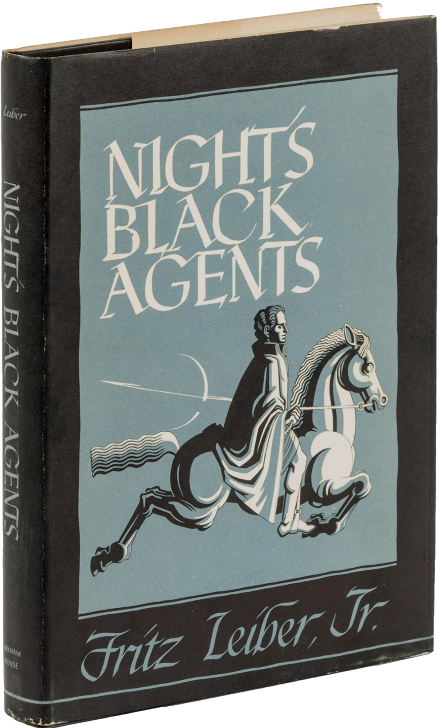The Man Who Never Grew Young
- by Fritz Leiber
- Short Story
- Fantasy, Experimental
- Adults
- Definite Time Travel
- English
- alternative byline.“The Man Who Never Grew Young,” as by Fritz Leiber, Jr., in Night’s Black Agents as by Fritz Leiber, Jr. (Arkham House, 1947).
Without knowing why, our narrator describes his life as a man who stays the same for millennia, even as others, one-by-one, are disinterred, slowly grow younger and younger.
The story is soft-spoken but moving, and for me, it was a good complement to T.H. White’s backward-time-traveler, Merlyn.
The story is soft-spoken but moving, and for me, it was a good complement to T.H. White’s backward-time-traveler, Merlyn.
It is the same in all we do. Our houses grow new and we dismantle them and stow the materials inconspicuously away, in mine and quarry, forest and field. Our clothes grow new and we put them off. And we grow new and forget and blindly seek a mother.

Tags
(14)
- Time Periods
- Stone Age (3.4 Ma to 3000 BC: Paleo/Epipaleo/Meso/Neo/Chalcolithic): Egypt, at the dawn of civilization
- Circa AD 1940 to 1949: The start of the cold war and beforehand, when the narrator’s memories begin.
- Timeline Models
- Time Runs in Reverse for Some Beings: But (I think) only for the narrator.
- Time Travel Methods
- Unexplained Time Travel Methods: “I often wonder why I never grow young.”
- Themes
- Long Life: The narrator stays as a man of about thirty for millennia.
- Time Montages: Many times, events, and peoples mentioned as the narrator lives time backward
- Unusual Aging: The narrator stays as a man of about thirty.
- Real-World Tags
- Adolf Hitler: “In the end, he is an obscure agitator, almost forgotten.”
- Egyptian Pyramids: “I who have seen king Cheops’s men take down the Great Pyramid block by block and return it to the hills.”
- Jesus: “I have heard Jesus unsay the great words.”
- Khnum Khufu: Briefly mentioned as Cheops.
- Socrates: “I have watched Socrates unthink the great thoughts.”
- William Shakespeare: “I have seen Shakespeare unwrite the great plays.”
- Groupings
Variants
(2)
- alternative byline.“The Man Who Never Grew Young,” as by Fritz Leiber, Jr., in Night’s Black Agents as by Fritz Leiber, Jr. (Arkham House, 1947).. . . . . . . . . . . . . . . . . . . . . . . . . . . . . . . written by Fritz Leiber as by Fritz Leiber, Jr.
- canonical byline.“The Man Who Never Grew Young” by Fritz Leiber, in Avon Fantasy Reader, (No. 9, 1949).
Translations
(4)
- French.
“L’homme qui ne rajeunissait jamais” [The man who never got younger] by Fritz Leiber, in Les lubies lunatiques de Fritz Leiber by Fritz Leiber (Casterman, August 1980). - German.
“Der Mann, der niemals jung wurde” [The man who never grew young] by Fritz Leiber, in Die besten Stories von Fritz Leiber by Fritz Leiber (Moewig, October 1980). - Italian.
“L’uomo che non divenne mai giovane” [The man who never became young] by Fritz Leiber, in Neri araldi della notte by Fritz Leiber (Casa Editrice La Tribuna, April 1979). - Serbian.
“Čovek koji nikada nije postao mlad” [The man who never became young] by Fritz Leiber, in Najbolje svetske SF priče 1984, edited by Zoran Živković (Prosveta, 1984).. . . . . . . . . . . . . . . . . . . . . . . . . . . . . . . written by Fritz Leiber as by Fric Lajber
